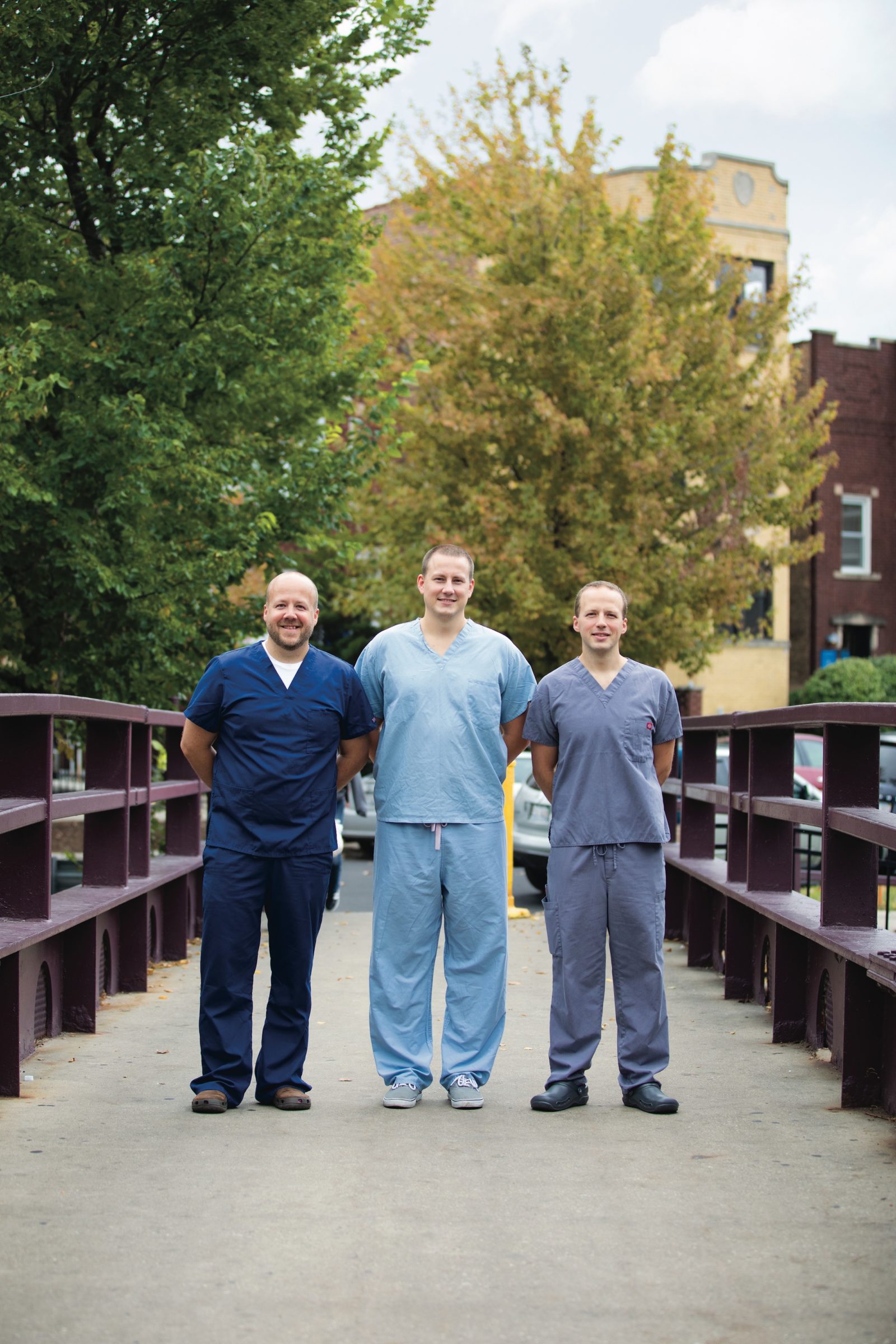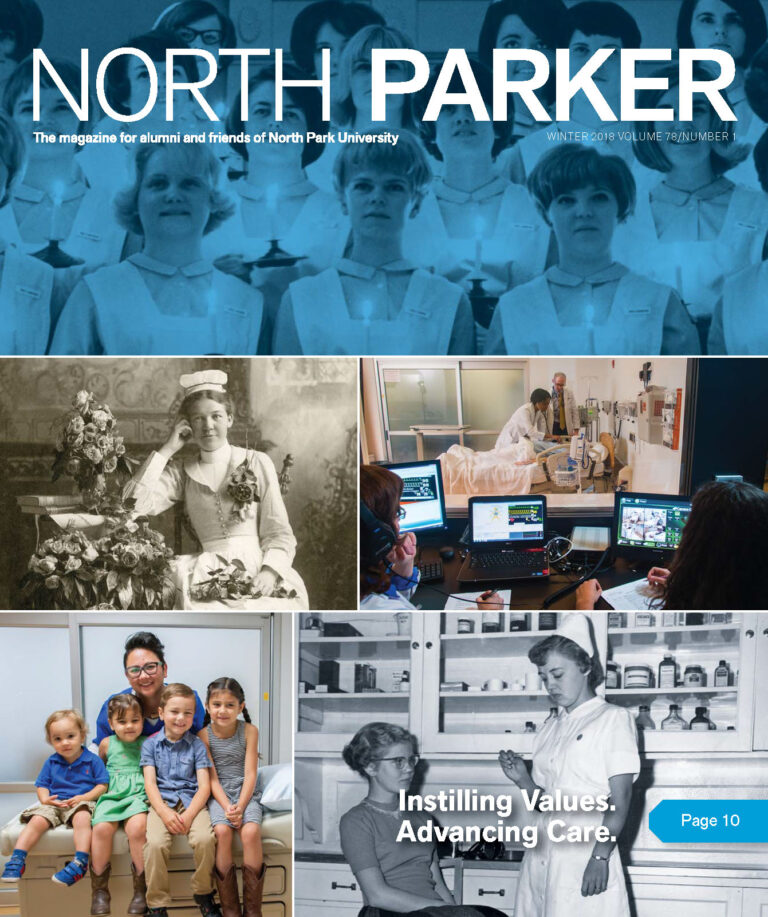 Scott C’13, Neal C’11, and Bryan C’09 Johnson have gotten used to the raised eyebrows and curious looks they get when they tell people what profession they’re in.
Scott C’13, Neal C’11, and Bryan C’09 Johnson have gotten used to the raised eyebrows and curious looks they get when they tell people what profession they’re in.
All three are nurses.
“I sometimes get that look of sympathy,” says Neal, 28, a former ICU nurse who is now pursuing certification as a nurse anesthetist. “There’s really no getting around the cliché.”
While the brothers are still among a handful of male nurses at their respective workplaces (90% of nurses are women), their ranks are growing: The percentage of male nurses in the workforce has tripled since 1970, from 2.7% to 9.6%, according to the U.S. Department of Labor. And, says Dean Linda Duncan, men now account for 20% of every nursing class in ��ݮӰ��’s School of Nursing and Health Sciences.
The brothers, who were raised by missionary parents in the United States and Guatemala, became nurses because they wanted to help others. Their nursing degrees also have laid the groundwork for immediate and rewarding careers.
“With some majors, you’re not sure where you’re going to end up,” says Bryan, 31, a pediatric nurse at Lurie Children’s Hospital. “With nursing, there’s a direct path to get a job.”
The brothers saw ��ݮӰ��’s location in Chicago as another bonus. All three know nurses who trained at other schools, some in rural locations, who didn’t graduate with the same broad-based perspective and deep experience that ��ݮӰ�� offers.
“I have some friends who, in school, only did rotations at an adult hospital,” Bryan says. In contrast, ��ݮӰ�� nursing students get a wide range of experience in everything from pediatrics to emergency care, and at a variety of world-class Chicago-area hospitals that work closely with ��ݮӰ��.
In addition to putting their professional training to work, the brothers say they are called upon, from time to time, to use their size and strength on the job.
Scott, 39, an emergency room nurse at Evanston Hospital, says supervisors often seek his help to assist with distressed patients. “Sometimes, a patient might need to be restrained for various reasons, and I’m the one they call on.”
In Lurie’s pediatrics department, Bryan says that many young patients are more comfortable relating to nurses in their gender. “Teenage boys are glad when I walk in the room. It can be easier for them to ask me questions or tell me what’s wrong.”
Similarly, Neal says he’s the one to lean on for his frail, elderly patients who have trouble getting around. They feel at ease relying on him for support.
“It’s nice to be able to help people feel safe,” Neal says.


